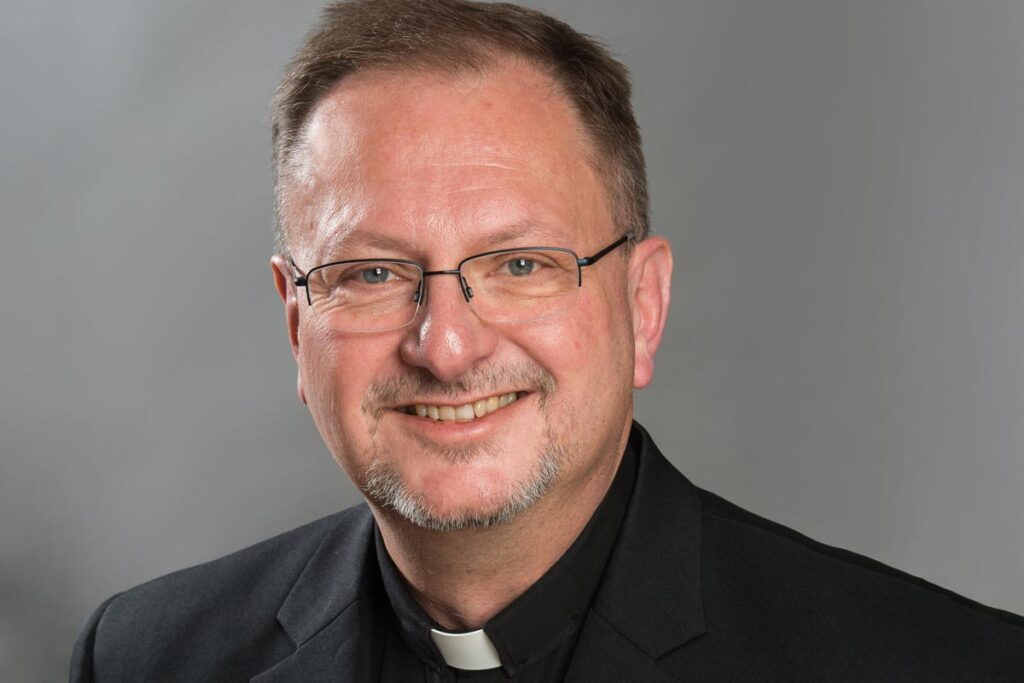Breaking the Chains: A Church Without Walls
By Jennifer Stone

Next year, Breaking the Chains Church will celebrate its 10th anniversary—a milestone in a ministry that began in one of the least likely of places: inside a correctional facility.
For Pastor David Rebey, MDiv ’20, the congregation’s current leader, the story is one of persistence, presence, and the power of God to transform lives in unexpected spaces. Many of the men at Felmers O. Chaney Correctional Center are transferred from other prisons for their last few years as they prepare to re-enter society. Before Breaking the Chains existed, there was no pastoral presence in the facility. That changed when Rev. Joseph Ellwanger, now 92 years old and a civil rights veteran who marched with Dr. Martin Luther King Jr. in Selma, petitioned the Wisconsin Department of Corrections to bring men to worship off-site.
From that seed grew the idea of planting a congregation inside the prison. Partnering with local congregations and other agencies, Breaking the Chains held its first worship service in 2016. David, then a seminary student, served on the formation team and volunteered weekly for Bible studies and worship.
The early days were slow. “There were times when we sat around wondering if anyone would come,” David recalls. “Sometimes it was just one man.” But the ministry grew steadily until COVID-19 brought it to a halt. Locked out of the prison, David and the congregation’s first pastor, Rev. Mark, recorded weekly services on CDs and delivered them to the facility. Later, they worshiped via Zoom until in-person ministry resumed.
When David’s first call at Redemption Lutheran Church came to an end, he accepted the call to lead Breaking the Chains full-time. Under his leadership, the ministry expanded to a second facility, Kenosha Correctional Center.
Breaking the Chains’ work now extends beyond prison walls. Approved to escort men into the community, David and volunteers lead weekly service projects at churches and nonprofits. These projects aren’t just about cleaning carpets or doing maintenance; they’re about restoring dignity. “The only thing I require,” David says, “is that the sponsoring organization feed the men and sit with them to eat.” Many participants have never worshiped with Breaking the Chains before, but after building relationships in the community, some begin attending regularly.
The nature of incarceration means that many congregants are transient; most participants are there for three years or less, so the congregation is constantly evolving. Yet the Holy Spirit keeps sending new people. Some stay in touch after release, but many don’t. David has learned to see that as a sign of success. “If staying in touch with me reminds them of prison, and they’re thriving outside, I thank God for that,” he says.
Worship at Breaking the Chains is informal and ecumenical, with men from diverse church backgrounds and some with no church experience at all. David preaches briefly, then invites discussion. Recently, during a study of John 13, a man preparing for release tearfully confessed he felt unworthy of God’s love and planned to return to homelessness. Another participant spoke up and told him “I love you like a brother, and you are a precious child of God.” That moment sparked a cultural shift. The men began checking in with each other in the halls during the week. “It made me pause and tear up,” David says. “God was at work in a hard place.”
Breaking the Chains is 100% funded by grants and donations from partner congregations. By sharing their story within the community, they not only gain financial support but also volunteers and ministry partners. Looking ahead, David hopes to bring on Seminary interns to learn about prison ministry and perhaps plant new congregations. “This is a different way of doing church,” he says. “We don’t have a building or a youth group. But we have a growing community, inside and outside the prison, who call Breaking the Chains their church home.”